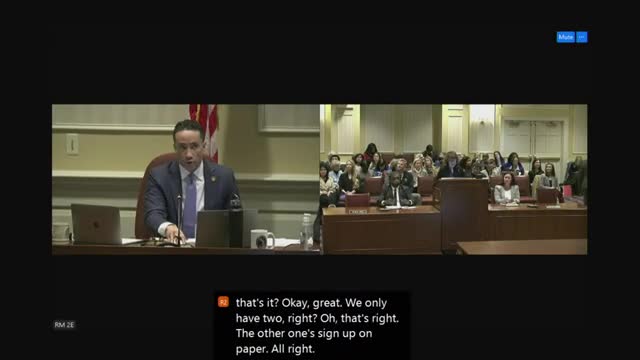Senate panel hears bill to expand geriatric and medical parole criteria and remove governor from final step
Get AI-powered insights, summaries, and transcripts
Subscribe
Summary
Senate bill 181 would clarify and expand Maryland’s geriatric and medical parole rules, shifting geriatric parole language into the correctional services article, tightening medical standards for release and removing gubernatorial review for parole determinations.
Senator Shelly Hettleman on Tuesday pressed the Judicial Proceedings Committee to approve SB181, legislation that would revise Maryland’s geriatric and medical parole provisions by clarifying medical criteria, moving geriatric parole language to the Correctional Services Article and removing the governor from the parole consideration step.
“People age out of crime,” Hettleman told the committee, arguing the current statutory structure and placement in the code makes it difficult for eligible older inmates to be considered. She said many incarcerated people are elderly and debilitated after serving long sentences and noted federal and other-state examples, including a high-profile federal medical parole, to argue for a clarified path to release for people who are both incapacitated and present minimal public-safety risk.
Nut graf: Proponents — including the Maryland Parole Commission chair and public defenders who work on parole cases — said the bill would strengthen standards, require better medical documentation, and correct drafting errors that have limited consideration of geriatric parole; opponents including some victims’ advocates urged caution and asked for more safeguards and data on outcomes.
Parole Commission chair Ernie Seelig testified the commission supports the bill as written and that its effect is to “strengthen and clarify existing law,” enabling the commission to review more eligible cases while remaining focused on public safety. Lila Meadows, assistant public defender, said parole commissioners have limited medical expertise and the bill clarifies medical standards, adds in‑person review options and signals what information the Department of Corrections should provide to the commission.
Supporters noted that, to date, very few people have been released under geriatric parole (one of 11 candidates over a 10‑year span, according to Commission testimony) despite a much larger population of older incarcerated people and argued the commission should be able to consider people who are chronically debilitated or terminally ill without an automatic gubernatorial sign‑off.
Opponents included victims’ advocates such as Joanna Mupenducci of the Maryland Crime Victims Resource Center, who told the panel that for families of murder victims parole can be revictimizing and asked lawmakers to reject an early‑release pathway. Committee members pressed for more data on why so few people were released under current law and asked the Parole Commission to report back with case details behind denials and approvals; several senators expressed interest in forming a work group to resolve regulatory and membership questions at the commission level.
Ending: The committee heard robust questioning but did not take a vote. Supporters urged a favorable report; opponents asked for more time to review safeguards and public‑safety implications.
